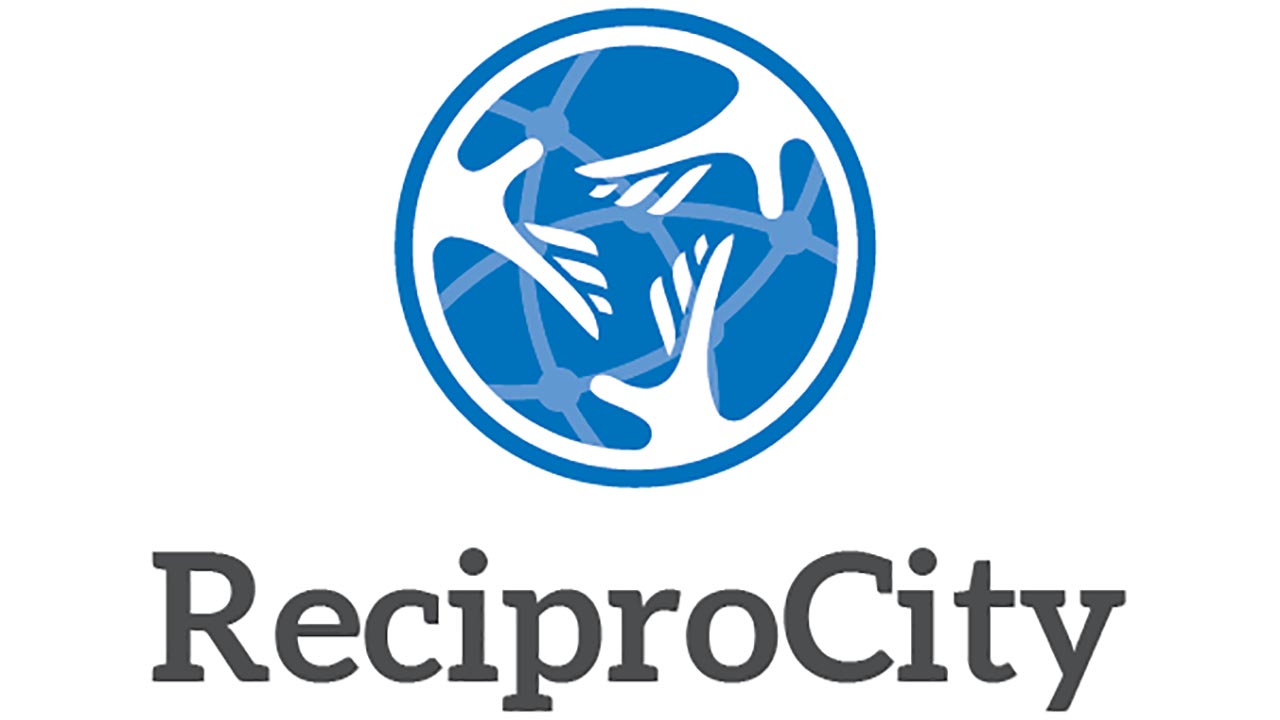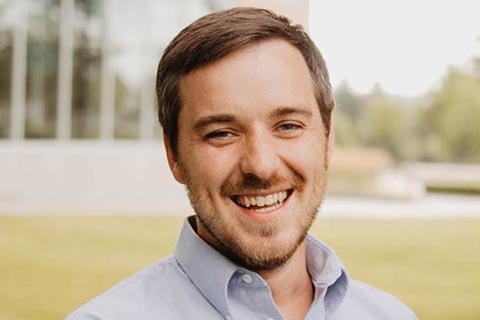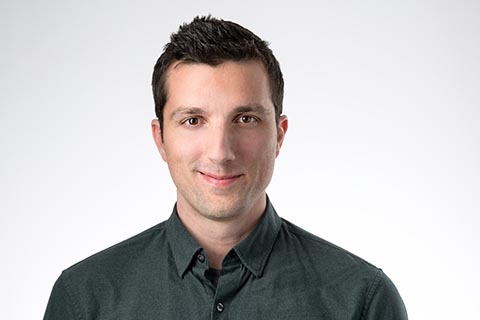OU alumni create company to help connect communities during COVID-19 pandemic
Pontiac-based ReciproCity Apps uses technology to build public goods

ReciproCity Apps, a Pontiac-based company co-founded by Oakland University alumni Cam Underdown, Chris Powers and Josh Linneburg, has been using technology to build public goods and help better connect communities during the COVID-19 pandemic.
“At our core, we believe that the nonprofit, human service, and local government sectors, which are vital to society as a whole, generally lacks access to the technology solutions,” Powers said. “ReciproCity exists to provide access to technological expertise, resources, and development to human service in order to build communities that are better connected, for the good of us all.”
The roots of ReciproCity date back to 2007, when Powers and Underdown met at Oakland University.
“I was actually part of the Honors College and lived on a floor called Five West Vandenberg,” Powers said. “Cam was good friends with some people who lived on Five West because he had lived there two years prior. I got introduced to him in the Vandenberg cafeteria through mutual friends, and then we would run into each other, have breakfast together in the cafeteria, etc. We just hit it off right away and became really good friends.”
 |
| Cam Underdown |
After graduating from OU, Powers and Underdown continued their entrepreneurial efforts in different sectors. Powers focused his efforts on corporate entrepreneurship around the country, while Underdown helped launch new nonprofits and faith communities in southeast Michigan. The friends would reunite in March 2020 during the early stages of the COVID-19 pandemic when Underdown developed and launched MyCovidResponse.org, an online resource created as a way to try to engage various networks of volunteers in a safe, coordinated manner.
“Right as Michigan was heading into lockdown, I saw a Facebook post by Cam where he launched this site called My COVID Response, where his goal was basically to engage volunteers and keep everyone safe,” Powers said. “I called him the day he launched the site and said ‘look, this whole pandemic is going to be bigger than you think it is and the only way that we can respond to an exponentially growing problem is with another exponential we have access to, which is technology.’
 |
| Chris Powers |
“At that point, I offered to be an adviser to the project and help him direct it part-time,” he added. “But in the course of about two weeks, it became evident that I needed to dedicate more than full-time effort to building it out.”
By mid-March 2020, the My COVID Response network had grown to include more than 200 volunteers, including students from the Oakland University William Beaumont School of Medicine.
“The OUWB students were crucial in the development and launch of our project,” Powers said. “You had a lot of students who were in residency rotations who couldn’t participate in them due to the pandemic, so we got some extremely dedicated, basically full-time medical students who really stepped up to the plate. They had some public health experience, as well as medical training, and they really gave a lot of heart and soul to the project.”
The My COVID Response network also caught the attention of Oakland University School of Health Sciences Professor Jennifer Lucarelli, who was spearheading efforts to create a collaborative emergency food system in response to the COVID-19 outbreak.
“She had the idea that we might collaborate and asked if we could use our site to get food to people,” Powers said. “In partnership with Lighthouse of Michigan and Dustin McClellan (founder and CEO of the Pontiac Community Foundation), we converted the first floor of the Oakland Center into a disaster food hub. Within two weeks, we were shipping the equivalent of around 30,000 meals per week out of the Oakland Center.”
During this time, more than 120 partner organizations signed up to work with the My COVID Response network to assist with the with the emergency food distribution effort.
“In many cases the partner organizations did the heavy lifting from the standpoint of the community service part,” Powers said. “What we did is we helped bring awareness. We had several thousand people sign up to get help, and once we had that, Lighthouse became the principal funder and operational partner for food as the program continued to scale up. The other component of this whole thing was sort of the technology development effort. That effort is what became ReciproCity.”
According to the organization’s website, ReciproCity was incorporated in September 2020 to “bring tech innovation to nonprofits, government and the human services.”
 |
| Joshua Linneburg |
“In the beginning we were basically using a combination of off-the-shelf tools that were freely available and a little bit of ingenuity to get resources out to people as quickly as we could,” Powers said. “As the pandemic evolved and our programs continued to scale, we just kept putting one foot in front of the other on the technical side and what we found is that there hasn’t been a lot of innovation on the non-profit sector since the 1980s. What we found is that the non-profit in local government was in desperate need of innovation and doing the innovation first for ourselves and now for other parties is sort of how ReciproCity was born.”
Shortly after launch, Linneburg joined Underdown and Powers on the ReciproCity team.
“My COVID Response and ReciproCity wouldn’t be nearly as effective without Josh,” Powers said. “After we prototyped a solution, Josh worked to make our systems more scalable and robust. In the early days as our programs scaled up to serve thousands of people we quickly ran into the limitations of freely available ‘no code’ tools for building startups. Josh helped Cam and I stay one step ahead of our technical challenges.”
Since March 2020, ReciproCity and the My COVID Response network have:
• Created a COVID-19 fact sheet and had it translated into over a dozen languages;
• Worked with OU Community Partnership Coordinator Diane Baldwin to coordinate the distribution of thousands of cloth face masks;
• Helped coordinate more than 49,685 food deliveries to families in need through the emergency food distribution program;
• Coordinated an Adopt-A-Family program in partnership with Lighthouse to serve over 300 families across Oakland County;
• Partnered with St. Joseph Mercy to launch a vaccination program for those in need.
“People have been struggling for some time, and the pandemic just exposed the cracks and the inequities in our system,” Powers said. “I hope that ReciproCity can continue building tools for various different service organizations, non-profits, and local governments to help get resources in the hands of people who need them in a way that’s dignified, accountable, fast and effective. If someone is running a service organization and they’re looking for help with technology, we’re here to help them.”
For more information about ReciproCity Apps, visit reciprocityapps.org.
To learn more about the My COVID Response network, visit mycovidresponse.org.

 December 01, 2025
December 01, 2025

